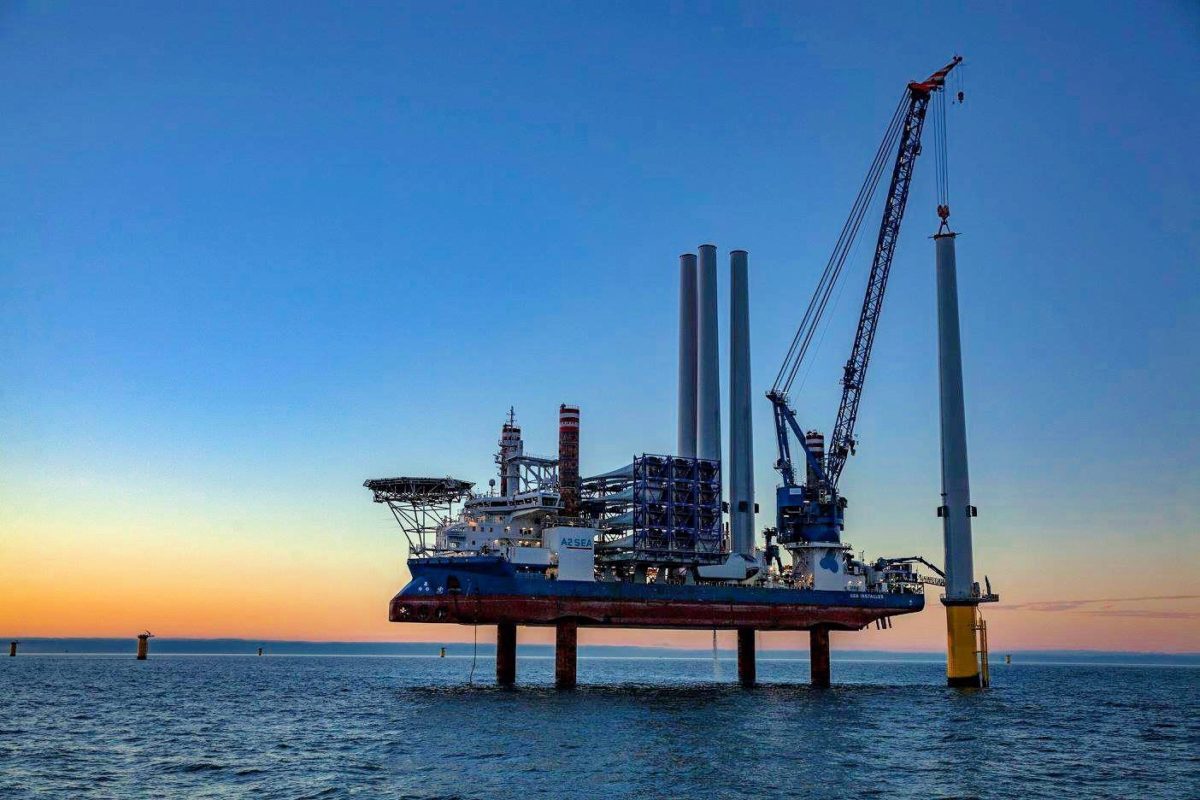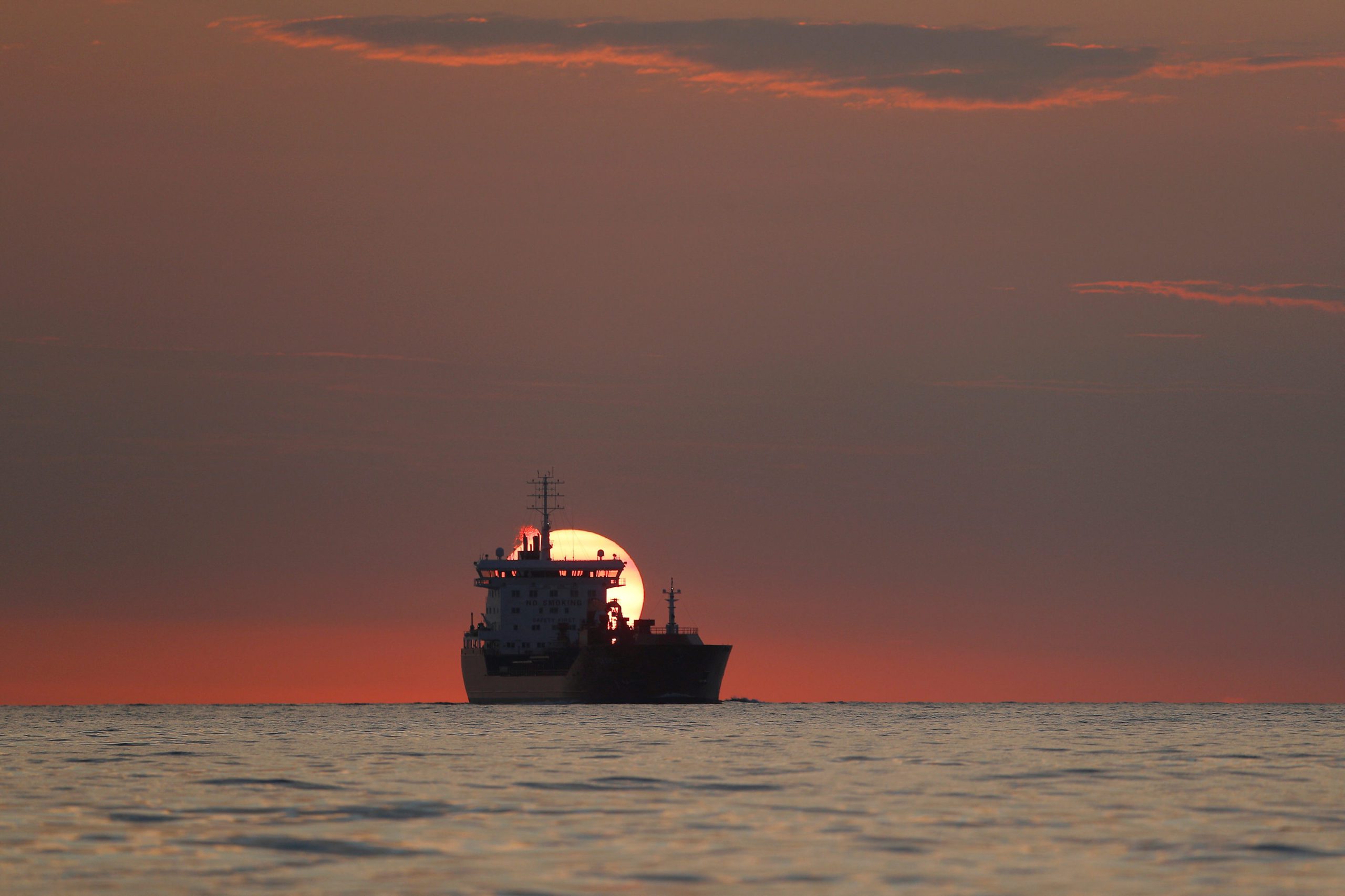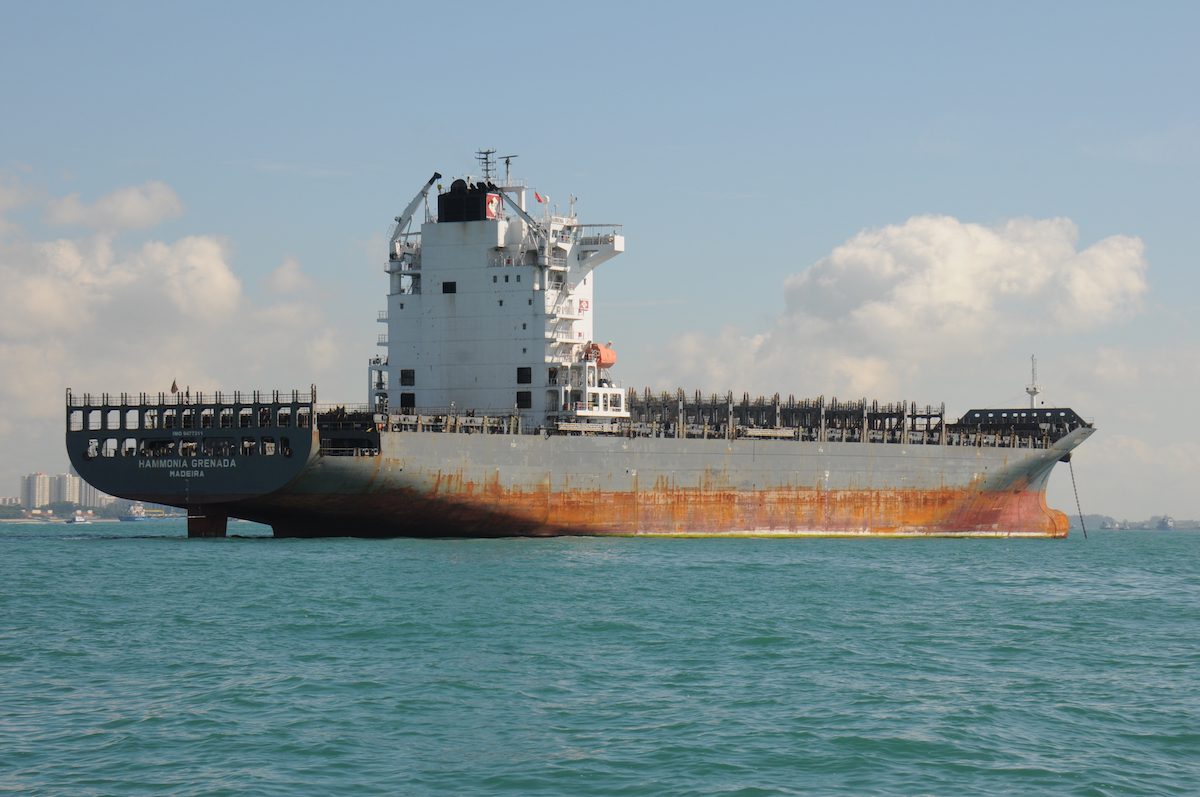(Bloomberg) — Martin Brydges landed his final catch as a fisherman in the English port of Grimsby a year ago, admitting defeat to an industry that virtually vanished over the four decades since the U.K. joined the European Union.The 58-year-old hasn’t stopped making a living from the North Sea, though. Brydges found work directing traffic for the vessels installing and repairing hundreds of offshore wind turbines. He reckons the prospects for the region have rarely been better — especially in post-Brexit Britain.
Brydges, like most of his friends and colleagues on the dockside, voted in June to leave the EU. They increasingly believe their region will get what it wanted: more influence in an economy dominated by finance in London. Unlike the money that flows across borders at the push of a button, the renewable-energy boom in this area of northern England promises a durable future, residents say.
“They talk about Brexit and the effect on wind farms, but when the wind farms are built they’re 25 year operations,” said Phil Christy, Grimsby’s dock master for port authority Associated British Ports. “They’re not going to go away.”
Beating Brexit
The town of Grimsby so far has seen about 50 million pounds ($61 million) of investment from offshore wind companies, according to the Humber Local Enterprise Partnership, a government organization established to help drive investment in the area. Siemens AG has a new 310 million-pound blade factory in the city of Hull on the north side of the estuary.
It’s a fraction of what’s promised. If Brexit has poured ice on some investment — carmaker Nissan Motor Co. further north in Sunderland is reviewing future spending — there’s little sign of it here. Dong Energy A/S, the world’s biggest installer of offshore wind turbines, last month announced a new servicing hub for at least three offshore wind farms as part of its plan to invest 6 billion pounds in Grimsby and the Humber by 2019.
“I don’t think Brexit changes anything because we’ve got projects in the pipeline and we’ve got our funds committed up to 2020,’’ says Brent Cheshire, U.K. chairman for Dong Energy. who’s originally from Cheshire in north west England.
The key attraction is proximity. Ports like Grimsby and Hull are within 12 hours sailing time of about 22 gigawatts of built and planned wind farm capacity in the North Sea. It represents about half the U.K.’s offshore wind market, which is the biggest in the world, according to a presentation to U.S. investors by the enterprise partnership.
Brydges’s employer, Grimsby Fish Dock Enterprises Ltd., has repositioned itself for renewable energy. Its tag-line on business cards is “supporting the offshore wind industry.”
The region pitches itself as an “energy estuary” also importing compressed wood chips for Drax Plc to burn at its biomass plant up the river. Those who champion it compare the region with the Scottish oil hub of Aberdeen — before the collapse in prices.
“Hull is the Aberdeen of this new industrial growth, but it’s not only industrial growth, it’s green economic growth,’’ says John Prescott, who was deputy prime minister under Tony Blair and former lawmaker for Hull East. “I don’t think Brexit can threaten the plan. Personally I don’t think we’ll leave Europe,” he said in an interview at his office in Hull University, where he works as a public affairs consultant to develop better links between Humber and other ports in the North of England.
Brexit Country
That conflicts with the message in the U.K. referendum on June 23 from many of the voters in his district.
Sat on the south bank of the Humber River on the east coast, Grimsby has felt the demise of what was once Europe’s largest fishing industry. Hull across the Humber Bridge — the longest single-span suspension bridge in the world when it opened in 1981 — has consistently had one of Britain’s highest jobless rates at twice the national average. Gross weekly pay in Hull and Northeast Lincolnshire, the district that includes Grimsby, is just under 450 pounds. People earn 38 percent more in London.
The decline of steel and other heavy industry along the river coupled with the influx of cheaper labor from eastern Europe in fishing and agriculture makes it archetypal Brexit country, with about two in three people voting against EU membership. They weren’t swayed by warnings of deeper economic hardship.
“Offshore wind can’t be Brexit-proof, because by the nature of it there’s going to be import and export trade in bits and pieces,’’ says Christopher Haskins, a former chairman of grocery distributor Northern Foods Ltd. and now oversees the Humber Local Enterprise Partnership. He campaigned for the U.K. to remain in the EU.
Prevailing Wind
Locals around the Humber estuary blame the EU for destroying fishing and leaving them to the mercy of a regulated single market, but like other areas that overwhelmingly backed Brexit, it runs deeper than that.
Places like Hull and Grimsby are being targeted by Prime Minister Theresa May as she positions her government as a champion of the struggling working classes after Brexit revived social divides between the globalized cities and the places that felt left behind. In her first major speech to her Conservative Party since taking leadership, May suggested this month she won’t prioritize banks in negotiations with the EU and committed to controlling immigration.
Targets to tackle climate change helped make offshore wind more resilient to the uncertainties of Brexit. The government has committed as much as 730 million pounds to support the expansion of new offshore wind farms and other renewables by 2020.
At the Siemens plant in Hull, the Brexit vote “hasn’t made one jot of difference,” said Finbarr Dowling, the project’s director. He brushed aside reports that the company put its wind power investment plans on hold following the Brexit vote. “At this moment in time we haven’t adjusted any of our plans for Siemens in Hull.’’
For analysis on Britain’s Brexit negotiations, click here
Around 95 percent of the 1,000 employees at the plant come from in and around Hull, named the U.K.’s City of Culture for 2017. Wind farm developers already commit to sourcing local content in return for government contracts.
Back at Grimsby Docks, Brad Pedersen, 22, encapsulates the mood of the next generation of local workers. Rather than follow his father and grandfather onto the trawlers, he took a job with Centrica Plc as a control room operator for wind farms. Pedersen made a last minute decision not to vote in the referendum, though thinks Brexit is unlikely to impact the wind farms that, like many of his friends, he plans to make a career in.
“Let’s be honest, it’s the most up-and-coming thing around here,” says Pedersen, who has friends training at the Siemens factory. “So we’re kind of lucky that it’s on our doorstep.”

 Join The Club
Join The Club











